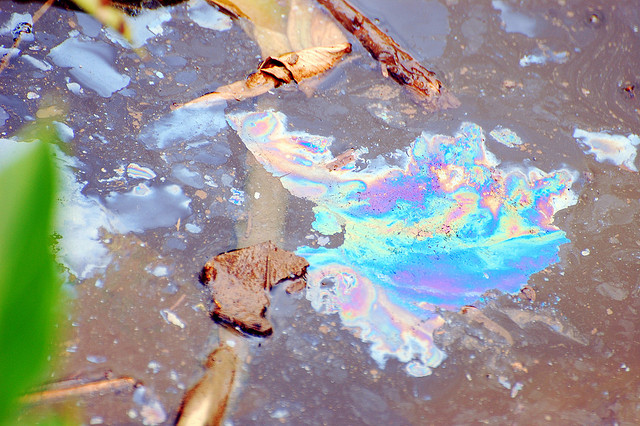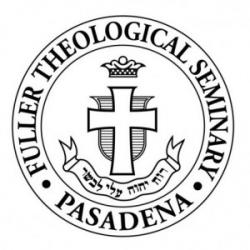By Dr. Tommy Givens
Cynicism is seldom a healthy response to deep corruption, but it is hard to resist in response to Pope Francis’s recent encyclical, Laudato Si, “Praise be to you.” For it systematically points out the obvious: We are destroying our earthly home; we should instead care for it, and we can. The reason for cynicism is not that the encyclical patronizes us, but that we would need to be told what is so obvious. But we do.
Nevertheless, many who detect in the encyclical a threat to some critical piece of their political platform, or the slightest irreverence for a god such as The Market, will not read it with any charity or introspection, but move quickly to brand and dismiss it. There’s plenty of fodder for that in its many pages, whose theological discourse ranges across biblical testimony, Catholic teaching, molecular biology, metaphysics, political economy, spirituality, technology, moral philosophy, and so on. Those so inclined will not have to look hard for soundbites or mantras with which to make Laudato Si into a straw man. Some Christians have already made it clear that they prefer Christianity to remain conveniently in the private and post-mortem provinces of life, so that they can continue their addiction to profitable false gods. But, as Pope Francis reminds us, the gospel is that Jesus is the gentle but persistent Lord of the whole world.
I suppose dismissive cherry-picking is as much a danger for those who applaud Laudato Si, those who reduce it to an endorsement of the scientific consensus on climate change, for example, or some other green fetish. The same cultural stupidity that needs the pope to tell us to stop destroying our home and to care for it, leads us to receive his teaching as only a boost or threat to our factional obsessions. Perhaps that is why so much of the encyclical pleads with us to listen to one another and cooperate patiently across the divides we have made: faith and science, socialists and capitalists, Christians and non-Christians, businesses and non-profits, wealthy countries and poor ones, etc. One hopes that evangelicals in particular can grow out of our anti-Catholic divisiveness and tend thoughtfully to this latest gift from the riches of Catholic social teaching.

Why do we need to hear the pope tell us what is obvious? It is much the reason that a child needs a parent to point out what is right in front of her but she hasn’t the experience to have learned, like keeping respectful distance from a poisonous snake or drinking sparingly on a long hike. Only in our case, it is a learned ignorance that we have acquired by experience, with far more at stake. We have learned a way of life in which a crowd of romanticized but destructive patterns of production, communication, and consumption form our appetites and claim most of our attention, blinding us to what lies right before us. Our appetites and attention must instead be directed holistically by the intricate relationships that constitute the health of our place over time, and by the complex web of communities’ places that is our created home. The consequence of our learned ignorance is a systematic externalization of costs from the manifold processes of our life, so that we do not name them, see them, or feel them, much less pay them ourselves–what Pope Francis repeatedly calls “the throwaway culture.”
As the encyclical explains, we externalize costs from the present by exacting them on people and other created life of the future, treating our very own lands and yards, for example, in such a way that will deprive future generations of their benefit. We externalize the costs of the way we live in one part of the city to other places in the same city or to the countryside, where we cannot see or feel their effect on us. We externalize the costs of industrialized economies to places in the world where local powerlessness, elitism, and the absence of regulations permit it. Refusing the limits of a national home, multinational corporations do in such less visible places “what they would never do in developed countries or the so-called first world” (par. 51). That is, they use them, including their local human populations, as mines and as dumps. Whatever patriotism they pay lip service to is in fact predatory factionalism. For their business is profitable for them and only parts of their national “home” today while eventually devastating for all if unchecked. Costs that are externalized in such ways are too complex and far-reaching to be measured with money, and the claims of their enterprises to “profit” and “progress” are always deceitfully partial.
Predictably, authorities have already begun to speak against the encyclical for its refusal to worship the gods of The Market or Technology, since these have supposedly blessed us with such bounty. But this is yet another case of externalizing costs, for the “blessings” attributed to these gods have come at an immeasurable cost to many people and places already, including plants, animals, and other gifts of God. Such sacrifices are deemed “worth it” by such critics, since they do not feel those sacrifices themselves, cannot imagine that those “blessings” could have been obtained more responsibly, and are unable to see that such gods are still far from being placated. More patient readers will find in the pope’s vision for cultivating a healthy home all kinds of room for markets, technology, and other such terms that are wrongly divinized or demonized in our sloganeering. It’s a matter of thinking holistically and carefully about such terms rather than using them for a factional platform. It’s a matter of refusing to use such terms to justify the sacrifice of underrepresented people and other silenced parts of the world. It’s a matter of ending our romance with Technology and seeing that we ourselves must change, along with our technology, if we are to repent and live as we pray, “Thy kingdom come, thy will be done, on earth as it is in heaven.”
One does not have to labor to discern in Laudato Si the theme that “a true ecological approach always becomes a social approach; it must integrate questions of justice in debates on the environment, so as to hear both the cry of the earth and the cry of the poor” (par. 49). Making the vulnerable pay the costs of others’ conveniences and excesses is among the primary modes of cost externalization in the current order of things. While I have learned from Wendell Berry to avoid the sterile word, “environment,” the theme encapsulated in this quotation is one of the encyclical’s great strengths. It exposes the fact that a culture of white supremacy that impoverishes and jeopardizes people of color, whether in the US or further afield, is the same throw-away culture that cannot be troubled by concern for future generations, for the beauty of other places, or even a deep beauty of its own place. It can see only its self, and that very incompletely. Whatever it strives to possess it reduces to “raw materials,” whose post-consumption excess is “disposable.”
I hope you will take time to read the encyclical, the tone of which is conciliatory and constructive, especially its guidelines for healthy ways forward in the final section. There is plenty to quibble with, of course. I looked in vain, for example, for any explicit appeal to divest ourselves from corporations at the forefront of destroying the human home, instead of continuing to “profit” from them. This is an urgent matter for Fuller as it is for many other institutions promoting the kingdom of God, if we are to grow out of our current hypocrisy. But rather than quibble with Christian teaching that calls our attention to the obvious, we are wiser to consider it thoughtfully and respond actively to its plea for a culture of care and loving sustainability. It is embarrassing, I know, to face the learned childishness evident in our inability to care for our own, God-given home. We prefer to imagine and market ourselves as above reproach, or at least as not knowing any better. But face our culpable childishness we must, for praising God means caring for what God has given. Perhaps that is why it is good, despite the warning of Matthew 23:9, that the pope is called “Holy Father.”
Read the full encyclical here.
Dr. Tommy Givens is assistant professor of New Testament Studies at Fuller Theological Seminary. He holds a ThD in Theological Ethics and New Testament, an MA in New Testament, and a BA in Spanish Language and Literature. Having previously taught theology at Centro Teológico Al-Ándalus in Spain, he teaches courses at Fuller in Spanish as well as English.
Follow Fuller Seminary on Twitter at @fullerseminary.











